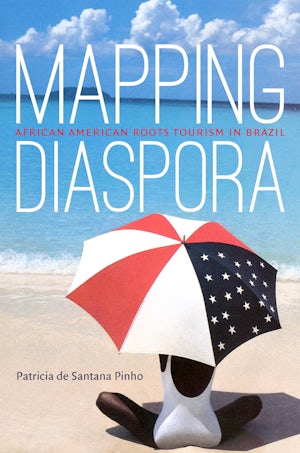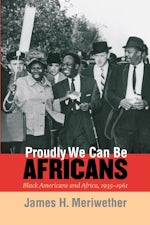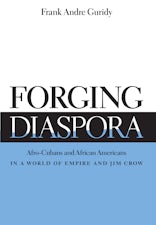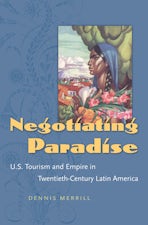Mapping Diaspora
African American Roots Tourism in Brazil
By Patricia de Santana Pinho
272 pp., 6.125 x 9.25, 4 halftones
-
Paperback ISBN: 978-1-4696-4532-2
Published: December 2018 -
E-book EPUB ISBN: 978-1-4696-4533-9
Published: October 2018 -
E-book PDF ISBN: 979-8-8908-5336-3
Published: October 2018 -
Hardcover ISBN: 978-1-4696-4531-5
Published: December 2018
Buy this Book
- Paperback $32.50
- Hardcover $99.00
- E-Book $22.99
For Professors:
Free E-Exam Copies
Pinho traces the origins of roots tourism to the late 1970s, when groups of black intellectuals, artists, and activists found themselves drawn especially to Bahia, the state that in previous centuries had absorbed the largest number of enslaved Africans. African Americans have become frequent travelers across what Pinho calls the "map of Africanness" that connects diasporic communities and stimulates transnational solidarities while simultaneously exposing the unevenness of the black diaspora. Roots tourism, Pinho finds, is a fertile site to examine the tensions between racial and national identities as well as the gendered dimensions of travel, particularly when women are the major roots-seekers.
About the Author
Patricia de Santana Pinho, associate professor of Latin American and Latino studies at University of California, Santa Cruz, is the author of Mama Africa.
For more information about Patricia de Santana Pinho, visit
the
Author
Page.
Reviews
“The questions that Pinho raises about negotiating the disjunctures of diaspora are important contributions to both Brazilian and diaspora studies.”--Hispanic American Historical Review
"Mapping Diaspora is a necessary addition to Black studies and African diaspora literature, but it is also an important book for those interested in travelling within and throughout the African diaspora. . . . [It] reminds readers of the importance of understanding one’s privilege when travelling abroad and, more importantly, that we all have a role to play in shifting the geopolitics of knowledge."--The Black Scholar
“This highly reflexive, thought-provoking, timely book will be of broad popular and scholarly appeal to readers interested in the transnational workings of racial and cultural identities.”--CHOICE
“An informative look at African American tourism to Bahia, Brazil. . . . [B]oth a work of scholarship and of advocacy.”—Nova Religio
“The single most sophisticated treatment I have ever read of the encounter and relationship between African Americans and Afro-Brazilians, this exceedingly fine and elegantly written book makes an original and exciting contribution to scholarship on the African diaspora. Pinho brings enormous insight to understanding the mutual perceptions of African Americans and Afro-Brazilians as both engage in a subtly patterned waltz of mutual recognition and nonrecognition.”—John S. Burdick, Syracuse University
“Exploring how and why Brazil has become the most significant country outside of Africa for African American heritage tourists, Pinho makes a valuable theoretical contribution to African diaspora studies. Tourists seeking ‘a shortcut to Africanness’ reveal that interpersonal connections and cultural exchange within the African diaspora are as important as the teleological return to Africa.”—Christopher Dunn, Tulane University




